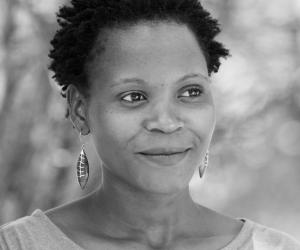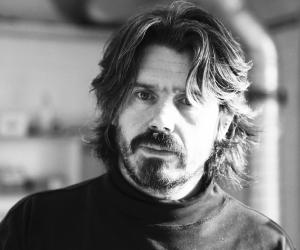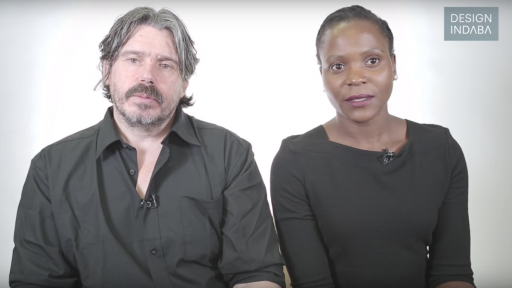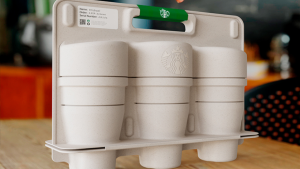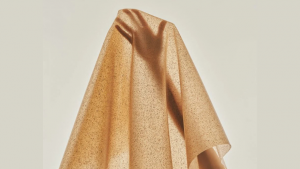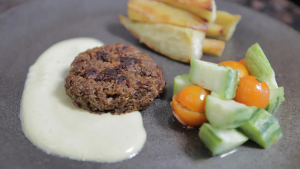The chicken is the biggest immigrant in the world, camels have two immune systems, and mushrooms are the next big thing in food security. At first glance, these ideas are unrelated and zany. But for two Design Indaba 2017 Conference speakers, the chicken, the camel and mushroom form the basis of a larger conversation around empowerment through diversity, art and science.
The eccentric, Belgian component in the collaboration, Koen Vanmechelen is best known for the internationally acclaimed Cosmopolitan Chicken Project (CCP) in which he crossbreeds domesticated chickens. Traced back to the wilds of South-east Asia, chickens can now be found all over the world. By crossbreeding the common food source, Vanmechelen created a symbolic project about the way diversity can shape the global cultural and genetic mix.
But with Zimbabwean activist and farmer Chido Govera, the Cosmopolitan Chicken Project’s allegorical implications took a backseat to the project’s scientific implications within healthcare. Together, Govera and Vanmechelen launched the Planetary Community Chicken Project (PCC).
It’s a fact that a diverse gene pool breeds strong, beneficial characteristics in all living organisms. Vanmechelen began to wonder how he could use one of the most interesting characteristics found in nature, the double immune system found in a camel, to enhance his already diverse chickens and in doing so, strengthen the eggs they would produce. To do it, he needed a bridge.
“We can’t exchange DNA (between a camel and a human) but it would be nice if we could use that part to make medication against cancer or viruses. So I started to think, what if we could use the egg of a chicken? If we can bring this system into a chicken and the egg can provide us with medication it would be nice,” he explains. “I saw how [Govera] was harvesting the beautiful mushrooms. I thought, ‘why can’t the mushroom be the bridge between the camelids and the chicken?’.”
She wanted to simplify the way mushrooms are grown and cultivated so that she could reach the people who need the most help.
Now, the Future of Hope Foundation, established by Govera in 2014, helps to transform the lives of women living in rural Zimbabwe. So far, her foundation has trained thousands of people in Zimbabwe, the Democratic Republic of the Congo, Ghana, Cameroon, Tanzania and South Africa. Her work has also reached communities in the United States, Australia and India. “We train them and help them set up projects in their communities, and provide high-quality food using sustainable methods,” she explained.
But mushrooms alone are not enough, she adds. According to Govera, communities would benefit if connections were made between new ideas. This is where the chicken artist comes in. Govera and Vanmechelen spoke about their unlikely partnership in an interview after the Design Indaba 2017 Conference.
With the PCC project, which the two hope to roll out in 2018, the pair is looking to create a sustainable food cycle that brings their three key elements together – the chicken, the mushroom and the camel.
“We started to make mushrooms on the dung or compost from the camelids,” explains Vanmechelen, claiming that, by doing this, they were able to improve the mushrooms which in turn were fed to the chickens. And finally, the egg would also be improved.
The approach forms part of Govera’s existing mushroom-based food production system aimed at empowering communities by leaving them with the skills to sustain their own eco-system. PCC gives the community the opportunity to recycle nutrients by feeding it to the chickens which then provides the community with eggs and meat.
At the same time, through their talks all over the world, Govera and Vanmechelen hope to encourage this new stream of knowledge to benefit future generations.

